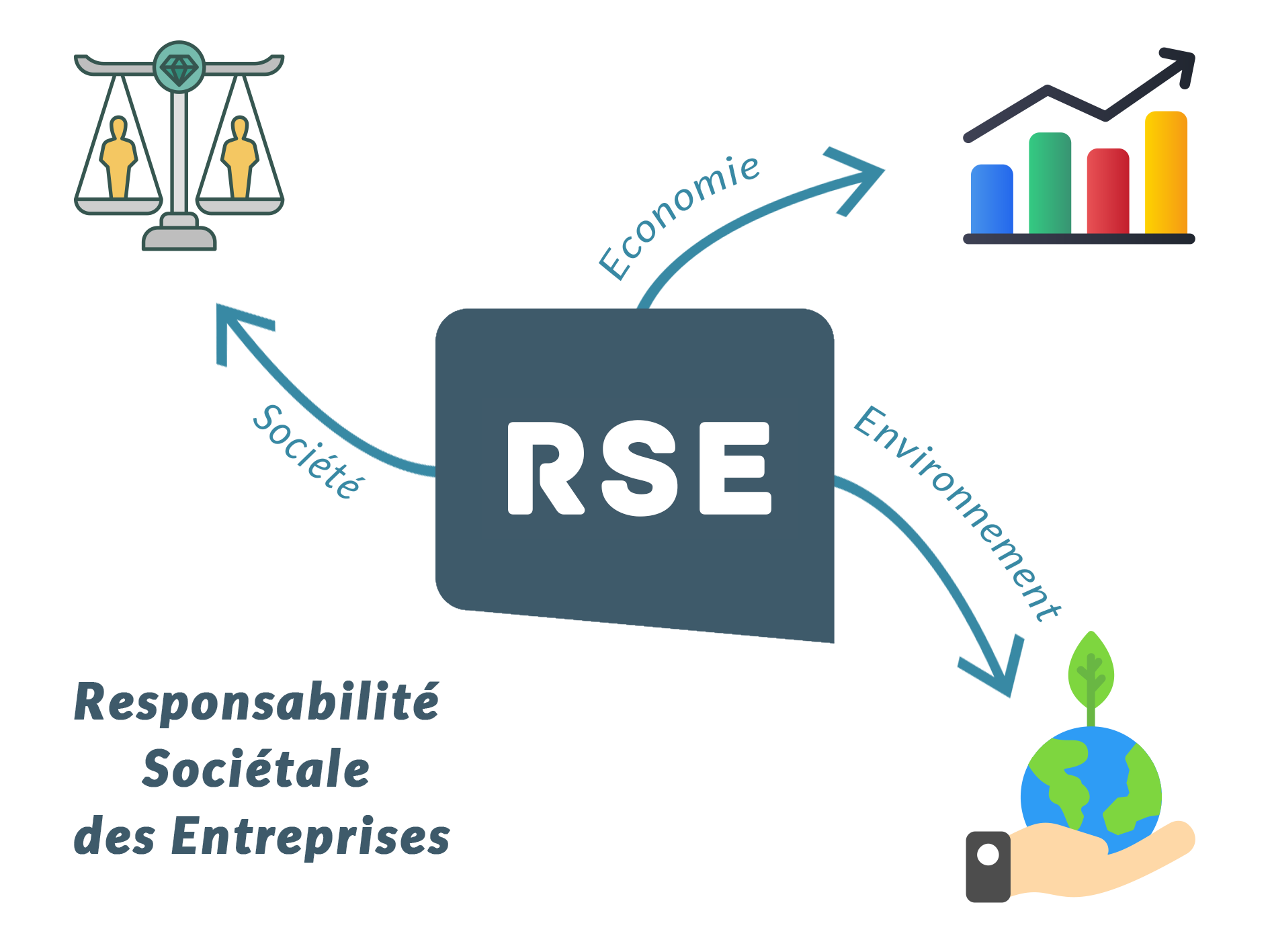A growing number of organisations (companies, administrations, etc.) are integrating economic, social and environmental criteria into the heart of their development model, making it part of a sustainable and lasting approach. While this approach reflects a real desire on the part of organisations to accept their responsibilities in the face of societal and environmental challenges, it also makes it possible to anticipate market developments and ensure the sustainability of the business.
Organisations are aware of the societal and environmental impacts of their activities and are determined to act in a more responsible and sustainable manner. They intend to play a major role in the transition to sustainable development.
“Although the theme of Corporate Social Responsibility (CSR) is not new, over the last five years there has been a significant change in the attitude of managers towards these issues," explains Yannick Masquelier, Founding Partner of ABV Development, a consultancy firm specialising in the environmental sector. This reflects an evolution in the approach of leaders. In the past, the only performance factor of an organisation was the financial results. There is now a real desire to consider the 'sustainable' value of the organisation, a societal and environmental value.”
If companies are increasingly taking on this subject, it is also to better anticipate the new obligations and constraints to come. The European Union is currently implementing a major project, a key element of which is the adoption of a "green taxonomy".
Green taxonomy is a system for classifying economic activities to identify those that are environmentally sustainable, i.e. do not add to climate change.
Taxonomy aims to guide and mobilise private investment to achieve climate neutrality over the next 30 years, thus fully aligning with the climate and environmental objectives of the European Green Deal.
"The aim is therefore to facilitate the financing of organisations that are part of a sustainable approach and activities that are in line with societal and environmental commitments," explains Yannick Masquelier. Although this taxonomy is still only partially implemented (with mandatory reporting deadlines for certain types of companies between 2022 and 2026), financial and public actors are increasingly integrating these sustainability aspects into their calls for tender or into the eligibility criteria for funding.
 |
“If these criteria are not yet decisive for accessing a public contract, we can see that this dimension is becoming increasingly important," adds Yannick Masquelier. There are and will be increasing demands and expectations on business organisations to report on their environmental and societal performance in relation to their activity, but also across their entire value chain. Therefore, if these organisations are forced to make commitments in this area, they will require their partners to do the same. In many cases, the pressure for respectful development will come from customers, who also want to turn to more responsible players. Ultimately, all players are and will be involved.”
In other words, if players want to maintain their position at the heart of the market, to maintain the links they have with their customers, they will have no choice but to adopt a sustainable development model.
"However, adopting a sustainable model is not so simple. It means being prepared and acting methodically," continues Yannick Masquelier.
For several years, ABV Development has been consolidating a solid expertise around these issues, accompanying companies in their transition and the adoption of a responsible approach. "The challenge is to integrate these environmental, societal and good governance criteria at the organisational level. To do this, we rely in particular on benchmarks or normative frameworks, such as ISO 26000 (CSR), which defines how organisations can and should contribute to sustainable development. This approach is said to be "qualitative and engaging" towards the stakeholders / interested parties of the organisations.
In addition, our approach is also based on ESG (Environmental, Social and Governance), which is "quantitative" and allows companies to limit their environmental, social and economic impacts. To complement this, we use the 17 Sustainable Development Goals (SDGs) approach to provide an ongoing assessment of the organisation's sustainability efforts. These include water conservation, climate impact mitigation and carbon neutrality and access to education, established by the United Nations and adopted since 2015.”
The process starts with a stocktaking exercise at the organisational level. This defines how the company creates value at the economic, societal and environmental levels. “The aim is to ensure that future developments do not contravene the defined sustainable development objectives and to see to what extent the activity can contribute to them," explains Yannick Masquelier. Based on the assessment, we will identify the avenues for improvement to be explored at the organisational and operational levels or through the adaptation of the business model with the managers, in order to minimise the impacts and, ideally, envisage a more virtuous approach.”
 |
These "CSR" efforts are part of a well-defined framework, with evaluation criteria to be implemented to account for the impacts. If well conducted, the approach can contribute to improving the company's economic, societal and environmental performance, particularly if it can report on the results obtained from the efforts made. With this in mind, ABV Development works with various certification platforms to assess the commitment of organisations to CSR and to enable them to better position themselves and stand out.